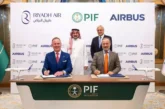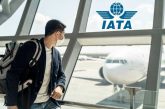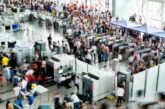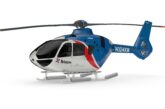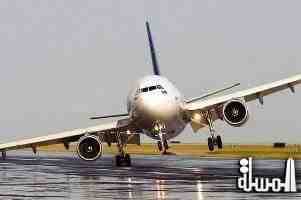
IATA – Mission accomplished or compromised?
Almasalla Travel News – IATA (International Air Transport Association) is credited with being the organization that systematized the airline industry at the very beginning of the 20th century. Before there was IATA, countries with airlines scheduled their own operations. Entrepreneurs started their own airlines and worked directly with the consumer or the travel agent. As air travel expanded from domestic to international arrivals and departures and the numbers of travelers increased, scheduling chaos was the outcome.
In 1945 IATA stepped in and turned bedlam into an organized system. This historical event took place in Havana, Cuba, where the airline pioneers developed standards to promote a safe and efficient airline system. Today IATA represents approximately 243 airlines or 84 percent of all scheduled international air traffic.
This is both good news and bad news.
Currently IATA:
– Sets airline standards between nations and organizes operations (from ticketing to baggage), enabling people to travel easily from place-to-place using two or more airlines
– Leads initiatives on safety, security, and the environment to improve the quality of airline travel
– Accredits 70,000 travel agents worldwide to assure high standards of service and dependability
– Through its Billing and Settlement Plans provides a financial structure for the industry and manages the flow of over US$270 billion that is generated annually between travel agent ticket sales to airlines.
— One of the current questions is whether or not IATA is still relevant.
How to Become Controversial. Start Something New
Although IATA is applauded for being engaged in all these useful tasks, the organization has currently become controversial as it seeks to set a new paradigm for the global airline transportation industry. The New Distribution Capability (NDC) has multiple segments of the airline transportation industry – furious.
The NDC proposes to revise standards and systems in the global airline industry. The idea is to reform the sale and distribution of airfares, routes, and seat availability (including price and location). The initial plan bypasses the travel agent/tour operator and the GDS system, and links directly with the consumer (think Amazon.com).
There is also concern that all products will not be made available to all consumers. Product availability may be based on zip code or other demographics that may be construed as exclusive rather than inclusive.
Why Now
With new technology available, airlines have been tweaking existing software applications but the outcome has not been useful or user-friendly. The size, diversity, universality and aging of current industry systems are cumbersome. Uncomfortable with the current situation, some IATA members appear to be taking matters into their own hands and diminishing the importance of the organization.
In an attempt to keep the industry cohesive, the NDC will concentrate on creating new standards – causing a cosmic shift for all the players in the industry including every airline, every travel agency, every tour operator, and every consumer shopping for an airfare or searching for a flight.
The NDC system permits the airlines to build a platform that will display airfares that be linked to consumer preferences (think online shopping). Based on consumer preferences (i.e., aisle seat, Wi-Fi, near toilet, vodka martini at take-off, tuna sandwich in-flight), seat and service availability will be presented to the consumer, along with the price (and, of course, date and time of departure).
IATA sees all this conversation and controversy as much ado about nothing. According to their ten page applications to the Department of Transportation the suggested NDC format will do nothing more than “enable more agile pricing and more personalized offerings” and “all product offers (including ancillaries) will be available for distribution through all channels that an airline wishes to sell them through… IATA… will enable the creation of a Dynamic Airline Shopping engine Application Program Interface (DAS API) based on IATA XML…”
Winners and Others
The airlines will store consumer preferences enabling the returning consumer to be welcomed and reminded that their last flight was to Denver, and they used the listed services. If the consumer did not make a drink or meal selection on the previous flight they will be prompted to consider additional services on their upcoming flight thereby increasing revenue for the airlines and – hypothetically – making the airline travel experience better for the consumer. Airlines buying into the NDC include Air Canada, Air France/KLM, American Airlines, British Airways, Delta, Emirates, Lufthansa and United.
Among the unhappy campers are the GDS operators, including Amadeus, Sabre and Travelport. Other industry players likely to be negatively impacted are ATPCO (Airline Tariff Publishing Company; main fare filing company) and OAG (main schedule filing company). The beneficiaries of NDC are likely to be tech organizations such as Farelogix, HP, Concur, Software by Google and Datalex.
What about the travel agents who process over US$300 billion a year in global ticket sales? Up to this moment they are working with the idea that they own their clients! At this time it is the travel agents systems that store personal preferences and related client details. If current clients decide to bypass the travel agent and go directly to the airline website – a revenue stream could be halted. Eagerly bypassing the travel agent is Frontier Airlines who recently set a new path by charging passengers for the use of the overhead bin if they do not book reservations directly with the airline.
The Business Travel Coalition (BTC) is concerned that the NDC system will violate privacy and human rights and enable passenger profiling as the airline can demand every traveler’s nationality, age, marital status, travel, shopping and purchasing history along with frequent flyer participation, whether the trip was business or leisure – and then – and only then – to offer a price quote.
All Opposed Say…
The Travel Technology Association, or Travel Tech, is the association for online travel companies (OTCs) and global distribution systems (GDSs). Its mission is to connect consumers and travel providers, eliminating barriers to travel and protecting consumers. Travel Tech’s members include: Amadeus, Expedia, Orbitz Worldwide, Priceline, Sabre, Travelport and Vegas.com. The Association opposes the IATA application for approval of the inter-carrier agreement contained in Resolution 787 (Enhanced Airline Distribution) as they determined that IATA failed to provide information to support the resolution as being in the public interest as required under 49 USC Section 41309.
The Association questions IATA motives, finding that the technology already exists to reach IATA objectives and therefore government intervention or encouragement is unnecessary. The organization believes the agreement between 240 competing IATA airlines will obscure the true costs of flying resulting in increased ticket pricing for all consumers.
The Global Business Travel Association (GBTA) also opposes the NDC citing concerns with profiling that could place to the disadvantage of the business traveler. The system might also drive business travelers to unknowingly circumvent corporate travel policy. It is also concerned that the NDC will increase airfare costs for companies without their knowledge or consent.
The American Antitrust Institute (AAI) raises concerns that the NDC will decrease competition.
Members of the travel and tourism industry are now voicing concern that a change of the airline distribution communications channels from EDIFACT to Extensible Markup Language (XML) to expedite the collection of personal passenger information may not be aligned with European privacy regulations.
Debate Continues
There is no easy answer to this project. Consumers do need a more efficient way to purchase airline tickets; however, the role of the travel agent and tour operator should not be lost as we rush to embrace technology.
Source : Dr. Elinor Garely, Editor in Chief, TourismExecutives.com (a division of eTN Publishing)




